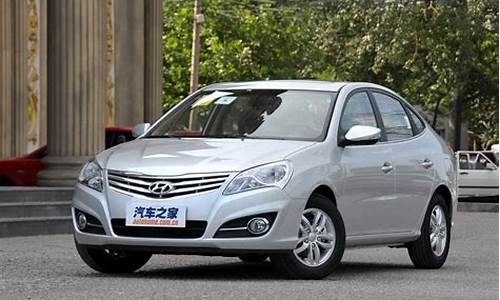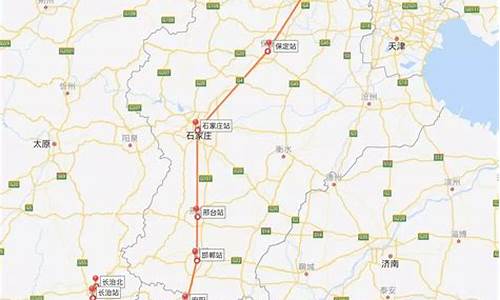您现在的位置是: 首页 > 相关资讯 相关资讯
rapide e多少钱_rapide e价格
ysladmin 2024-07-22 人已围观
简介rapide e多少钱_rapide e价格 很高兴有机会和大家一起谈论rapide e多少钱的话题。这个问题集合包含了一些常见和深入的问题,我将详细回答每一个问题,并分享我的见解和观点。1.洛克人exe2金手指怎么用2.劳伦斯
很高兴有机会和大家一起谈论rapide e多少钱的话题。这个问题集合包含了一些常见和深入的问题,我将详细回答每一个问题,并分享我的见解和观点。
1.洛克人exe2金手指怎么用
2.劳伦斯斯特罗尔有什么产业
3.大数据好学么?
4.将来会怎么样用英文写作文
5.英语区分几个时态

洛克人exe2金手指怎么用
按金手指→金手指列表→输入金手指→看看金手指开头的小方框有没有打勾(有:可以了!没有:打上!)
附上:
HP不减
02008A94:0F
02008A95:27
HP最大值
02001132:0F
02001133:27
钱无限
02000E34:3F
02000E35:42
02000E36:0F
02008A60:63
洛克炮威力
02001128:04
02001129:04
0200112A:04
99MB
02000DD7:63
全晶片(*字段)
020011D9:63
020011EB:63
020011FD:63
0200120F:63
02001221:63
02001233:63
02001245:63
02001257:63
02001269:63
0200127B:63
0200128D:63
0200129F:63
020012B1:63
020012C3:63
020012D5:63
020012E7:63
020012F9:63
0200130B:63
0200131D:63
0200132F:63
02001341:63
02001353:63
02001365:63
02001377:63
02001389:63
0200139B:63
020013AD:63
020013BF:63
020013D1:63
020013E3:63
020013F5:63
02001407:63
02001419:63
0200142B:63
0200143D:63
0200144F:63
02001461:63
02001473:63
02001485:63
020014:63
020014A9:63
020014BB:63
020014CD:63
020014DF:63
020014F1:63
02001503:63
02001515:63
02001527:63
02001539:63
0200154B:63
0200155D:63
0200156F:63
02001581:63
02001593:63
020015A5:63
020015B7:63
020015C9:63
020015DB:63
020015ED:63
020015FF:63
02001611:63
02001623:63
02001635:63
02001647:63
02001659:63
0200166B:63
0200167D:63
0200168F:63
020016A1:63
020016B3:63
020016C5:63
020016D7:63
020016E9:63
020016FB:63
0200170D:63
0200171F:63
02001731:63
02001743:63
02001755:63
02001767:63
02001779:63
0200178B:63
0200179D:63
020017AF:63
020017C1:63
020017D3:63
020017E5:63
020017F7:63
02001809:63
0200181B:63
0200182D:63
0200183F:63
02001851:63
02001863:63
02001875:63
02001887:63
02001899:63
020018AB:63
020018BD:63
020018CF:63
020018E1:63
020018F3:63
02001905:63
02001917:63
02001929:63
0200193B:63
0200194D:63
0200195F:63
020011:63
02001983:63
02001995:63
020019A7:63
020019B9:63
020019CB:63
020019DD:63
020019EF:63
02001A01:63
02001A13:63
02001A25:63
02001A37:63
02001A49:63
02001A5B:63
02001A6D:63
02001A7F:63
02001A91:63
02001AA3:63
02001AB5:63
02001AC7:63
02001AD9:63
02001AEB:63
02001AFD:63
02001B0F:63
02001B21:63
02001B33:63
02001B45:63
02001B57:63
02001B69:63
02001B7B:63
02001B8D:63
02001B9F:63
02001BB1:63
02001BC3:63
02001BD5:63
02001BE7:63
02001BF9:63
02001C0B:63
02001C1D:63
02001C2F:63
02001C41:63
02001C53:63
02001C65:63
02001C77:63
02001C89:63
02001C9B:63
02001CAD:63
02001CBF:63
02001CD1:63
02001CE3:63
02001CF5:63
02001D07:63
02001D19:63
02001D2B:63
02001D3D:63
02001D4F:63
02001D61:63
02001D73:63
02001D85:63
02001D:63
02001DA9:63
02001DBB:63
02001DCD:63
02001DDF:63
02001DF1:63
02001E03:63
02001E15:63
02001E27:63
02001E39:63
02001E4B:63
02001E5D:63
02001E6F:63
02001E81:63
02001E93:63
02001EA5:63
02001EB7:63
02001EC9:63
02001EDB:63
02001EED:63
02001EFF:63
02001F11:63
02001F23:63
02001F35:63
02001F47:63
02001F59:63
02001F6B:63
02001F7D:63
02001F8F:63
02001FA1:63
02001FB3:63
02001FC5:63
02001FD7:63
02001FE9:63
02001FFB:63
0200200D:63
0200201F:63
02002031:63
02002043:63
02002055:63
02002067:63
02002079:63
0200208B:63
0200209D:63
020020AF:63
020020C1:63
020020D3:63
020020E5:63
020020F7:63
02002109:63
0200211B:63
0200212D:63
0200213A:63
02002151:63
02002163:63
02002175:63
02002187:63
02002199:63
020021AB:63
020021BD:63
020021CF:63
020021E1:63
020021F3:63
02002205:63
02002217:63
02002229:63
0200223B:63
0200224D:63
0200225F:63
02002271:63
02002283:63
02002295:63
020022A7:63
020022B9:63
020022CB:63
020022DD:63
020022EF:63
02002301:63
02002313:63
02002325:63
02002337:63
02002349:63
0200235B:63
0200236D:63
0200237F:63
02002391:63
020023A3:63
020023B5:63
020023C7:63
020023D9:63
020023EB:63
020023FD:63
0200240F:63
02002421:63
02002433:63
02002445:63
02002457:63
020024B1:63
晶片图鉴
02000060:FF
02000061:FF
02000062:FF
02000063:FF
02000064:FF
02000065:FF
02000066:FF
02000067:FF
02000068:FF
02000069:FF
0200006A:FF
0200006B:FF
0200006C:FF
0200006D:FF
0200006E:FF
0200006F:FF
02000070:FF
02000071:FF
02000072:FF
02000073:FF
02000074:FF
02000075:FF
02000076:FF
02000077:FF
02000078:FF
02000079:FF
0200007A:FF
0200007B:FF
0200007C:FF
0200007D:FF
0200007E:FF
0200007F:FF
02000080:FF
PA图鉴
0200009C:FF
0200009D:FF
0200009E:FF
0200009F:FF
模式修改
出现STYEL:02000F05:03
数值代表等级,00是取消该模式,01~03是LV1~3
若想更换模式,请先将已有的模式以数值00输入进行取消,否则会当机
02000F06:03 怪力模式+电属性
02000F07:03 怪力模式+火属性
02000F08:03 怪力模式+水属性
02000F09:03 怪力模式+木属性
02000F0B:03 改装模式+电属性
02000F0C:03 改装模式+火属性
02000F0D:03 改装模式+水属性
02000F0E:03 改装模式+木属性
02000F10:03 兄弟模式+电属性
02000F11:03 兄弟模式+火属性
02000F12:03 兄弟模式+水属性
02000F13:03 兄弟模式+木属性
02000F15:03 盾模式+电属性
02000F16:03 盾模式+火属性
02000F17:03 盾模式+水属性
02000F18:03 盾模式+木属性
02000F19:03 彩斗装甲
以下是CodeBreakerAdvance代码:
Custom满
82004F0C 4000
无随机战斗
82009082 0000
敌人HP为1
42008B54 0001
00000003 00C0
洛克人能力
Attack:32001128 0004
Rapid:32001129 0004
Charge:3200112A 0004
洛克炮杀伤力..
82009C18 FFFF
32000DD4 270F
晶片威力变成5000..
42009C3C 1388
00000005 0002
所有晶片
42000EF0 0404
00000003 0002
战斗时间0
82004F1C 0000
战斗等级S
32004EFA 000B
3200EFF7 000B
战斗中任意移动
3200ECF4 0012
3200ED04 0012
3200ED64 0012
3200ED74 0012
3200ED84 0012
3200EDE4 0012
3200EDF4 0012
3200EE04 0012
劳伦斯斯特罗尔有什么产业
短duǎn长度小,与“长”相对:短期。短暂。短促。短途。短命。短讯。短浅。短兵相接。短小精悍
缺少,欠:短少。短缺
缺点:短处。护短。取长补短
欠缺长笔画数:12;部首:矢;笔顺编号:311341251431
笔画顺序:撇横横撇捺横竖折横捺撇横
详解
短duǎn形同本义〖short〗。指两端距离小。与“长”相对。指空间或指时间短,有所长短,以矢为正。
《说文》。按,短,不长也
以其长见与短见也。
《吕氏春秋·长见》。注:“近也。”帝尧长,帝舜短,文王长,周公短,仲尼长,子弓短。
《荀子·非相》老臣以媪为长安君计短也。
《战国策·赵策》又如:短趁;短盘驴子;短盘;短票;短绠;短梦寿命短促〖short-lived〗凶短折。
《书·洪范》。郑注:“未冠曰短。”又如:短局促;短岁浅薄,简陋〖shallow;superficial〗问之人以穷其短。
清·刘开《问说》又如:短才;短笔;短供短duǎn动引申为不足,缺乏〖lack;beshortof〗西人长火器而短技击。
清·徐珂《清稗类钞·战事类》又如:不短钱花;短头;短乏;短欠;短吃少穿指摘缺点,揭发过失〖expose〗令尹子兰闻之,大怒,卒使上官大夫短屈原于顷襄王。
《史记·屈原贾生列传》又如:短恶;短毁;短状缩短〖shorten〗。如:短丧;短价指短路。拦路抢夺〖intercept〗看他穿的袄子布衫靴子帽,则怕有短路的。
明·徐伯株《贫富兴衰记》短duǎn名缺点;过失〖shortcoming〗兼百花之长而各去其短。
明·李渔《闲情偶寄·种植部》又如:短儿;短道儿;短话;揭短;取长补短姓短棒duǎnbàng〖stick〗钓鱼人用来把钓得的鱼打昏或打死的一种棒泛指不长的棒木棒;铁棒短兵相接duǎnbīng-西安āngjiē〖fightatclosequarters;engageinhand-to-handfight;closeaction;confrontclosely〗短兵:刀剑等短兵器。谓作战时敌我逼近,双方面对面地用短兵器交战搏斗;也比喻面对面地进行激烈斗争黎明军进,短兵相接,杀伤大当。
《宋史·刘惟辅传》短波duǎnbō〖shortwe〗波长为30—100米,频率为3—30兆赫的电磁波或无线电波短不了duǎnbuliǎo〖cannotdowithout〗∶不能缺少人短不了水〖cannotoid;heto〗∶免不了技术革新,短不了要找老师傅商量短长duǎn-cháng〖strongandweakpoints〗∶缺点和长处〖rightandwrong〗∶事情的是非和人的好坏〖accident〗∶意料不到的变故〖shortandlong〗∶物品的短与长〖shortandhigh〗∶人的个子的矮或高短程duǎnchéng〖shortrange;shortdistance〗短的距离;短的过程短秤duǎnchèng〖giveshortmeasure〗亏秤;指出售物品斤两不足短处duǎnchù〖shortcoming;weakness;fault;deficiency〗缺点;未能达到预计的或所要求的品德标准或行为标准的情况或事实短传duǎnchuán〖shortpass〗指球类运动中的短距离抛扔或传递短粗duǎncū〖stubby〗∶短小;粗壮短粗的身材短粗的腿〖shortandhey〗∶短促而粗重呼吸短粗短促duǎncù〖transitory;shortduration〗∶时间短暂而急促将尘世的短促欢乐换取天国的希望〖short〗∶突然出其不意的缩短或结束的一段短促但令人兴奋的经历短刀duǎndāo〖dagger;shortweapons〗小刀,短兵器短笛duǎndí〖piccolo〗比普通长笛高一个八度的小型的尖声笛子短短duǎnduǎn〖close〗∶极短的理发师把他的头发剪得短短的〖little〗∶被认为是极短的;尤指似乎是短暂的只需等待短短的一个月短吨duǎndūn〖shortton〗见“美吨”短歌duǎngē〖tanka〗日文五行诗的固定形式,其第一行与第三行各有五个音节,其它各有七个音节形式短小的汉语古典歌行诗短绠汲深duǎngěng-jíshēn〖drawwaterfromadeepwellwithashortrope〗绠:水桶上的绳子。桶绳短而欲汲出深井之水。比喻人的学识浅陋,不明深理或才小不胜重任成事短绠不可以汲深井,知鲜不可以与圣人言。
《庄子》短工duǎngōng〖laboureronshorttermbasis;casuallabourer;seasonallabourer〗临时的雇工打短工短骨duǎngǔ〖shortbone〗长、宽、厚相差不大的骨,如手腕和足跟部的骨短号duǎnhào〖cornet〗主要用于吹奏乐队的有活塞的铜管乐器,形状和音域类似小号,但音质较暗短褐duǎnhè〖coarseclothjacket〗古代平民穿的粗布短衣邻有短褐而欲窃之。
《墨子·公输》短褐不完duǎnhè-bùwán〖shortclothinginimperfectcondition〗短褐:粗布短衣。不完:破烂不堪。形容衣衫褴褛富者木土被文锦,犬马余肉粟,而贫者短褐不完,含菽饮水。
《汉书·货殖传》短简duǎnjiǎn〖shortnote〗简短的信件写了一封短简也作短柬短见duǎnjiàn〖shortsightedview〗浅薄的见识;眼光短浅庸人短见短见duǎnjiàn〖〗有意识地杀死自己自寻短见短剑duǎnjiàn〖dagger〗短小的剑;匕首短句duǎnjù〖shortsentence〗能表达完整意思的简短语句短剧duǎnjù〖skit〗包含在戏剧表演中的短滑稽剧或喜剧包含在时事讽刺剧中或单独演出的短小的严肃戏剧;尤指业余作者创作的剧本或业余剧团上演短距离duǎnjùlí〖shortdistance〗不长或近的路程短裤duǎnkù〖pants;shorts〗裤脚在膝盖以上的裤子短量duǎnliàng〖shortweight〗重量小于规定的重量短路duǎnlù〖shortcircuit;short〗∶电流自电源一端未流过负载而直接流回电源的另一端〖highway〗[方言]∶拦路抢劫〖〗∶指自杀寻短路短论duǎnlùn〖essay〗一种分析性的、解释性的或批评性的文章,通常比学术论文或学位论文短得多,论述也不那么系统、正规且通常是从有限的、往往是从个人的观点来论述主题的短命duǎnmìng〖dieyoung;beshort-lived〗寿命短促,死得早短命鬼短跑duǎnpǎo〖dash;sprint〗比速度的短距离赛跑短篷duǎnpéng〖smallhouseboat〗有篷的小船短篇duǎnpiān西安ǎoshuō〖shortstory〗字数较少,篇幅不长,人物不多,结构紧凑的短片duǎnpiàn〖shortfilm〗单独放映的或几个连起来放映的短记录影片或教育影片短平快duǎnpíngkuài〖rapidspike〗∶“短平快”本来是排球比赛中“快攻”战术的一种〖researchwithlittleinvestmentbutquickresult〗∶目前常用来形容技术开发项目投资少、周期短、见效快、效益高短评duǎnpíng〖briefcomment;shortcommentary〗简短的评论文艺短评短期duǎnqī〖short-term〗发生在或涉及到的较短期间六个月或少于六个月期限的短气duǎnqì〖shortofbreath;bedisprited〗丧气;缺乏自信心普天下灰心短气之事,未有甚于老大者。
清·《饮冰室合集·文集》短浅duǎnqiǎn〖narrowandshallow〗指智虑、见识等肤浅目光短浅短欠duǎnqiàn〖owe;beshortof〗少;欠缺;不够堀损短欠短枪duǎnqiāng〖shortarm;musketoon;handgun〗枪身短小的火器的统称短拳duǎnquán〖shortpunch〗一种拳术,拳法密集,猛起硬落,简明快速,出手较短短缺duǎnquē〖fallshort;shortage〗不足短上衣duǎnshàngyī〖jacket〗∶穿在身体上半部的类似外套的短外衣,通常有前开门、领、翻领、袖子及口袋,长度从腰部至臀部不等,有时单独穿,有时作为一套衣服的一部分穿〖spencer〗∶女子穿的合体茄克,长及腰部或更短些短衫duǎnshān〖shortgown〗短的褂子;单上衣短诗duǎnshī〖versicule〗∶篇幅小的诗〖verset〗∶指宗教经典中的短诗坐着膝上放着打开的可兰经,吟唱着可兰经中的短诗短视duǎnshì〖nearsightedness;myopia〗∶近视的性质或状态〖lackforesight〗∶眼光短浅短寿促命duǎnshòu-cùmìng〖life-shortening〗促使人早点死他一点不明,倒说这样短寿促命的话来气我!
叶圣陶《外国旗》短亭duǎntíng〖pilionwhichdistancefromthecityisfiveli〗离城五里的亭子叫短亭短统靴duǎntǒngxuē〖ankleboots〗只到踝关节部的一种短靴短途duǎntú〖short-haul;shortdistance〗近距离;路途近短途公共汽车短袜duǎnwà〖socks〗∶针织或编织的足套,通常套至踝部以上,有时长及膝盖,穿于鞋内或其他鞋袜内〖anklet〗∶袜统通常仅略高于脚踝的袜短外套duǎnwàitào〖waist〗∶能遮住从颈部到腰部的外套或衣服〖coatee〗∶指带短下摆或短后摆的紧身上衣短文duǎnwén〖short〗∶报纸或期刊上的一段短的新闻报道或特写〖shortessay〗∶篇幅短的文章短衣帮duǎnyībāng〖labouringmasses〗旧时劳动人民穿短衣,故短衣帮指劳动人民短线duǎn西安àn〖shortline〗比喻需求量超过供应量的产品、专业等增加短线钢材的生产短线产品duǎn西安ànchǎnpǐn〖shortlineproduct〗企业生产的小于社会需要的产品短小duǎn西安ǎo〖shortandsmall〗形容人身材矮小形容文章、戏剧等不长,泛指事物短而小短小精悍duǎn西安ǎo-jīnghàn〖notofimposingstaturebutstrongandcapable〗∶身材短小而精明强干短小精悍姿,屹然强寇敌。
唐·杜甫《赠王思礼》〖shortandpithy;terseandforceful〗后形容文章、言论等简短有力《你我》原想写一篇短小精悍的东西。
朱自清《你我》自序队伍人少但强而有力一支短小精悍的侦察队短袖duǎn西安ù〖halfsleeve〗见“半袖”短讯duǎnxùn〖newsinbrief〗简短的消息报道短训班duǎnxùnbān〖shotr-termtrainingcourse〗短期的培训班短衣duǎnyī〖coatee〗指带短下摆或短后摆的紧身上衣短语duǎnyǔ〖phrase〗词组。即两个词或更多的词组合而成的造句单位名词短语短暂duǎnzàn〖brief;ofshortduration;transient〗∶时间短;持续时间很有限的短暂中断〖fugacious;evanescent;transient〗∶转瞬即逝的画家的声誉是建立在最短暂的实体
即公众的喜好上的短指duǎnzhǐ〖brachydactyly〗异常短的指短装duǎnzhuāng〖bedressedinaChinese-stylejacketandtrousers〗只穿中装上衣和裤子而不穿长衣叫短装,也叫“穿短装”短装打扮儿短拙duǎnzhuō〖shallowandclumsy〗浅陋笨拙
出处
[①][duǎn][《__》都管切,上_,端。]谓两端距离小。与“长”相对。指空间。谓两端距离小。与“长”相对。指时间。指寿命短促。缺点;过失。谓指摘缺点;揭发过失。缺少。浅薄;谫陋。不擅长。缩短。指短路。拦路抢夺。通“_”。参见“短_”、“短_”。姓。清有短愚。见《德安府志·职官上》。
午集中矢字部短;康熙笔画:12;页码:页824第33唐_正_都管切集_____切,?端上_。_文有所_短,以矢_正。徐曰若以弓_度也。__促也,不_也。_·_典日短星昴,以正仲冬。_·月令度有_短。又_短_。史_·六_年表__用,而___短之_起。__短__於六__,行_入短,其___,用相激怒。又短功。唐_·百官志凡工匠,十月至正月_短功。又短人。史_·孔子世家僬_三尺,短之至也。荀子·非相篇帝__,帝舜短。文王_,周公短。仲尼_,子弓短。__·博物志伊尹黑而短。又凡指人_失曰短。史_·屈原_上官大夫短屈原於_襄王。前_·_望之__朋__述望之,短____。_古_短__其短_也。又叶多卷切,音近_。__·思__天步悠_,人道短矣。_途同_,_早晚矣。又叶都眷切,音近玷。__·夷中_江流日益深,民__已_。峰_古崖石,草木__短。集_或作?。
卷五矢部编号:3296短,[都管切],有所_短,以矢_正。从矢豆_。
大数据好学么?
劳伦斯·斯特罗尔以时尚行业起家,却以汽车收藏家而出名,更重要的是他拥有着一支F1车队。在全球车企都在加速电动化进程的情况下,阿斯顿·马丁也曾尝试过推出纯电动车型RapideE,但这个在2019年宣布无限期中止。原因无它,目前的电动技术无法支撑阿斯顿·马丁的超豪华品牌定位,并且它们的目标客户依旧钟情于大排量燃油车。
劳伦斯·斯特罗尔以时尚行业起家,却以汽车收藏家而出名,更重要的是他拥有着一支F1车队。从汽车收藏家到F1车队老板,再到一个超豪华品牌的最大股东,可以说斯特罗尔完成了很多车迷可望不可及的事情。
开发燃油车型
成为阿斯顿·马丁的掌权人,意味着斯特罗尔会在阿斯顿·马丁车型研发上给予更多的支持,比如继续开发燃油车型。虽然在11月,英国首相鲍里斯·约翰逊宣布,英国可能自2030年起全面禁售传统化石燃料汽车的消息。
但斯特罗尔公开做出回应:我从未表示阿斯顿·马丁的内燃机业务会降到零,总是会有发烧友想要使用内燃机,公司将迎合他们的需求,到2030年,仍然有5%的业务将是内燃机。如果说阿斯顿·马丁坚持造燃油车的最终目的是为了服务富豪们,那么苦苦钻研内燃机技术的马自达更像是一个偏执的理工男。
将来会怎么样用英文写作文
大数据前景是很不错的,像大数据这样的专业还是一线城市比较好,师资力量跟得上、就业的薪资也是可观的,学习大数据可以按照路线图的顺序,学大数据关键是找到靠谱的大数据培训机构,你可以深度了解机构的口碑情况,问问周围知道这家机构的人,除了口碑再了解机构的以下几方面:
1.?师资力量雄厚
要想有1+1>2的实际效果,很关键的一点是师资队伍,你接下来无论是找个工作还是工作中出任哪些的人物角色,都越来越爱你本身的技术专业大数据技术性,也许的技术专业大数据技术性则绝大多数来自你的技术专业大数据教师,一个好的大数据培训机构必须具备雄厚的师资力量。
2. 就业保障完善
实现1+1>2效果的关键在于能够为你提供良好的发展平台,即能够为你提供良好的就业保障,让学员能够学到实在实在的知识,并向大数据学员提供一对一的就业指导,确保学员找到自己的心理工作。
3. 学费性价比高
一个好的大数据培训机构肯定能给你带来1+1>2的效果,如果你在一个由专业的大数据教师领导并由大数据培训机构自己提供的平台上工作,你将获得比以往更多的投资。
希望你早日学有所成。
英语区分几个时态
1. 关于未来的英语作文
With the rapid development of hi-tech,our life will change a lot in many ways in the future.
随着高科技的飞速发展,我们的生活将在很多方面对未来发生很大的变化.
Now, people are getting richer and richer. Let's think, what will the life be like in the future?
现在,人们越来越丰富.我们认为,将生活是什么样的未来?
In the future, we won't he to change many clothes every day.
在未来,我们不会天天更换的衣服.我们将穿着一种特殊的衣服.
We will wear a kind of special clothes.
We can be warm when we feel cold and be cool when we feel hot.
They will he many beautiful colours. We can change the colour we like anytime.
他们将有许多美丽的色彩.我们可以改变我们随时喜欢的颜色.
In the future, there are more and more kinds of food we can choose.
They will be much more delicious than now.
在未来,有越来越多种类的食物,我们可以选择.他们会比现在更加鲜美.
They will not be expensive.
We can buy them with little money. Isn't it wonderful?
他们将不昂贵.我们可以用很少的钱购买.是不是很美妙?
In the future, all of us will live in beautiful houses. It can move anywhere.
在未来,我们所有人都将生活在美丽的房子.它可以移动任何地方.
2. 关于未来的英语作文题目:62616964757a686964616fe59b9ee7ad9431333262343161Something about the future正文:Not long in the future,people's life will he big changes as well as people's basic necessities of life.Even there will be robots earing to help us.And there will be pilotless automobile which can help us get to the destination safely and quichly which does'n need us control.Besides,there will be space ship which can take us to other plas even though it's far away from us.In addition,there will be super puter which can help us calculate various of plated calculation.I am looking forward to being in the future.希望能帮上你!。
3. 英语作文未来My Future PlansI am studying at a middle school now, this is my second year, so I will be study in high school soon. I he many future plans, the first is studying hard, so I can enter a good high school, only study in such school, I can he more chances to get into a better college. My second plan is treling a city this year. I like to trel, I go to visit a different city every year. This time, the winter holiday is ing soon, I want to relax myself, so my trip is right at the hand. Now, I must study hard, my future plans need me to work hard. No pain, no gain, someday I will enter a good college。
4. 写未来的英语作文,60词左右My future life in 10 years
Hello,everyone! What do think your life will be like in 10 years? Well, I will be a popular and famous singer and I will sing around the world. I will buy a big house for my parents and girl friend in Xiamen.Because I`ve ever been to Xiamen a few times and I`ve already fallen in love with it. I will keep a pet dog and I might even keep a cute koala。I will make much money and work hard to make my parents and girl friend hy. Although my dream hasn`t e true yet,I will try my best to make it e true and I won`t never give up forever!So how about yours?
5. My future英语作文,最好带翻译英语作文
My future is not a dream, I am sure it will e ture with my effort. So I think in my future I will be a good chief. I want to cook many delicious food for all people, I like to see their hy *** ile when they eat my cooked food. And that is my life aim, so from now on I need to work hard and make great progress everyday!
翻译:
我的未来不是梦,我觉得通过我的努力我的梦想可以实现。我觉得在我的未来我将会成为一个很好的厨师。我想为大家做出美味的食物,我喜欢看着人们吃我做的时候时候露出的幸福表情。那也是我的人生目标,所以从现在开始我就要好好学习天天想上!
自己写的,希望能对有所帮助!
6. 关于未来的生活的英语作文my future school I think my future school life will be more colorful and interesting. We won't he so many classes every day so we can he more free time to take part in more interesting activities, such as puter class, table tennis, chess and so on. we will he more matches against other school and other classes. There are more natural activities, such as visiting to the museum, going to the movies ets. Sometimes we won't go to school instead of staying at home and surfing the inter and he class on the inter. In a word my future school life will be more abundant. 中文翻译: 我想我未来的生活将更加丰富多彩和有趣的。
我们就不会有那么多的课程每一天,我们可以有更多的空闲时间参加一些有趣的活动,如电脑类,桌球,等等。我们会对其他学校和其他类的更多的比赛。
有更自然的活动,如参观博物馆,去看**等。有时我们不上学而不是呆在家里上网,在网上上课。
总之我未来的生活将更加丰富. 望纳,谢谢!!。
总共十二种时态:
1.一般现在时
2.一般过去时
3.一般将来时
4.现在进行时
5.过去进行时
6.将来进行时
7.现在完成时
8.过去完成时
9.将来完成时
10.现在完成进行时
11.过去完成进行时
12.将来完成进行时
其中英文最常用的时态有五个:一般现在时;现在进行时;一般过去时;一般将来时和现在完成时。
一、 一般现在时:
用动词原型表示,但单数第三人称后要加-s,在词尾加-s时要注意:
1. 一般情况:加-s 例:reads,writes,says
2. 以s,x,ch,sh收尾的词加-es 例:teaches,washes,guesses
3. 以辅音字母+y结尾的词变y为i再加-es 例:try—tries,carry—carries。
这个时态的疑问句一般以句首加助动词do,does构成。句中动词要用原型动词be提前:
do you know it?
are you students?
does she he a pen?
1.一般现在时表示经常性或习惯性的动作:
we always care for each other and help each other。
they cycle to work every day。
2.现在的特征或状态:
he loves sports。
do you sing?a little。
i major in english。
3. 遍真理:
light trels faster than sound。
two and four makes six。
the moon moves round the earth。
有些表示状态和感觉的动词常常可用于一般现在时:be,love,like,hate,want,hope,need,prefer,wish,know,understand,remember,believe,recognize,guess,suppose,mean,belong,think(以为),feel,envy,dou,remain,consist,contain,seem,look(看起来),see,fit,suit,owe,own,hear,find,suggest,propose,allow,show(说明),prove,mind(在意),he(有),sound(听起来),taste(尝起来),matter,require,possess,desire等等。
i feel a sharp pain in my chest。
the soup contains too much salt。
you see what i mean?
the coat fits you very well。
how do you find the book?
有些表示动作的动词间或可用于这一时态,表示现刻的动作,由于动作持续时间机短,用于进行时不自然:
i send you my best wishes。
i salute your courage。
now i extend my heartfelt thanks to you。
在口语中这个时态用来表示一个按规定、或安排发生的情况(这是都有一个表示未来时间的状语):
when do the train lee(stop at jinan)?
the plane take off at 11 am。
tomorrow is saturday。
is there a firm on tonight?
但这只限少数动词,如begin,come,go,lee,sail,start,arrive,return,dine,end,stop,depart,open,close,be等。另外,在时间或条件从句中,将来动作或状态多用这一时态表示:
tell her about that when she come。
turn off the light before you lee。
we‘ll start as soon as you are ready。
在口语中,这个时态间或可以用来表示一个已经发生的动作(这个动作发生的时间在说话人脑中处于很不重要的地位):
they say xiao wu is back。is that true?
xiao yu tells me you‘re going abroad。
oh,i forget where he lives。
yes,you answer quite well。
此外一般现在时还多用于报刊、**、电视解说等其他几种情况。
二、 现在进行时
现在进行时用助动词be的人称形式加现在分词构成,它的肯定、否定、疑问形式如下:
i am working。
i am not working。
am i working?
现在进行时主要表示现在或现在这一阶段正在进行的动作。
where are they hing the basket-ball match?
they are putting up the scaffolding。
he‘s showing a foreign guest round the city。
在不少情况下,表示正在进行的动作的汉语句子,并没有“正在”这样的字,在译为英语时却必须用进行时态:
how are you getting on with the work?
the work is going fairly smoothly。
you are making rapid progress。
it is blowing hard。
who are you waiting for?
whenever i see her,she is working in the garden。我每次看到她时,她总是在花园里干活。
在一般现在时所列的表示状态和感觉的动词,一般不能用于进行时态,因为他们不能表示正在进行的动作。但如果词义转变,能表示一个正在进行的动作,就能够用于进行时态,试比较下面的句子:
do you see anyone over there?你看到那里有什么人吗?
are you seeing someone off?你在给谁送行吗?
i hear someone singing。我听见有人唱歌。
they are hearing an english talk?他们在听一个英语报告。
what do you think of it?你觉得这怎么样?
what are you thinking about?你在想什么?
另外,表示无法持续动作的动词,一般不宜用于进行时态,但有些可以用于这个时态表示重复、即将等:
he is jumping up and down。她一上一下地跳着。
the train is arriving。火车就要进站了。
the old man is dying。老头病危了。
现在进行时有时可用来表示一个在最近按或安安排要进行的动作(这是多有一个表示未来时间的状语):
we are leing on friday。
are you going anywhere tomorrow?
a foreign guest is giving a lecture in english this afternoon。
xiao hong!coming。
who is interpreting for you?
we are hing a holiday next monday。
但这仅限于少量动词,如go,come,lee,start,arrive,lunch,return,dine,work,sleep,stay,play,do,he,wear等。
另外,“be going+不定式”这个结构经常用来表示即将发生的事或打算(准备)做的事:
i am afraid it is going to rain。
it is going to be rather cold tomorrow。
she is not going to speak at the meeting。
在这个结构中过去有许多人不赞成用go和come这两个动词,感到很别扭,主张不说are you going to go anywhere tomorrow?而说are you going anywhere tomorrow?不说is she going to come?而说is she coming?但现在在这种结构中用两个动词的人越来越多,这种用法基本上被大家接受了。
此外,在时间和条件状语从句中,间或也可用现在进行时表示将来的情况或一般情况:
do not mention this when you are talking with him。
remember that when you are taking a rest,some else is always working。
if she is still sleeping,do not wake her up。
现在进行时有时用来代替一般现在时,表示一个经常性动作或状态,这是或是为了表示一种感情(a)如赞叹、厌烦等,或是为了强调情况的暂时性(b)。
a. how are you feeling today?(比how do you feel today?更显亲切)
xiao hua is doing fine work at school。(比xiao hua does fine work at school。更富赞美)
he is always thinking of his work。表赞许
he is constantly leing his thing about。她老是乱扔东西。(表不满)
he is always boasting。他老爱说大话。(表厌烦)
b.he is sleeping in the next room now。他现在现在是在隔壁房间睡了(不再原来房间睡了)。
the professor is typing his own letters while his secretary is ill。
where is he working?他现在在那里工作?(可能刚换工作)
for this week we are starting work at 7:30。
he is walking to work because his bicycle is being repaired。
be间或可用于进行时态,表示一时的表现:
you are not being modest。
he is being silly。
she is being friendly。
xiao hong is being a good girl today。
do not talk rot。i am being serious。
注: 在there和here引起的句子中,常可用一般现在时代替现在进行时:
here comes the bus。(=the bus is coming.)
there goes the bell. (=the bell is ringing.)
在某些情况下两种情况都可以用,没有多少差别:
i wonder (am wondering) how i should answer then.
does your leg hurt? (is your leg hurting?)
it itches (is itching) terribly.
my back aches (is aching).
i write (am writing ) to inform you.
未完待续。。。
(发帖时间:2004-01-06 19:51:16)
---3dnow外语学习成员
三、 一般将来时
一般将来时由助动词shall或will加动词原型构成,shall用于第一人称,will用于第二、三人称。这个时态的肯定、否定及疑问机构可表示如下:
i shall go.
i shall not go.
shall i go?
除英国以外的说英语的国家,在陈述句中,即使在第一人称一般也用will,在英国也有这种趋势,在口语中常紧缩为i’ll.
一般将来时表示将要发生的动作和情况:
i will (shall) arrive tomorrow.
will you be busy tonight?
the agreement will come into force next spring.
we won’t (shan’t) be free tonight.
有时表示将来的时间状语,有时没有时间状语,这时要从意思上判断是否指未来的动作或情况:
i will think it over.
who will take the chair?
will she come?
they won’t object it.
在以i 或 we 作主语的问句中,一般用shall,这时或是征求对方的意见(a),或是询问一个情况(b):
a. shall i make a fair copy of it?
which book shall i read first?
where shall we meet?
b. shall we he any classes tomorrow?
when shall we he the rehearsal?
shall i be able to find them there?
在这类问句中,近年来也有不少人用will,特别是美国。
what will we do?
how will get there?
which will i take?
注意在时间或条件状语从句中,一般不能用将来时态,而用现在时态代替:
i’ll let you he the book when i’m through.
they’ll fight till they win complete victory.
i’ll be round to see you if i he time tomorrow.
注:在两种情况下条件从句可以用一般将来时:
1. 表示愿望:
if they won’t cooperate, our plan will fall flat.
2.主句的谓语表时现在的情况:
if he won’t arrive this morning, why should we wait here。
表示将要发生的动作或情况,除了一般将来时外,还有一些其他结构和时态:
1. be going +不定式(表打算、准备作的事或即将发生或肯定要发生的事):
we ‘re going to put up a building here.
how are you going to spend your holiday?
who is going to speak first?
2. be +不定式(表示按安排要发生的事或用来征求对方的意见):
when is the factory to go into production?
the line is (going) to be opened to traffic next week.
am i to (=shall i ) go on with the work?
3.一般现在时(限于某些动词,表示按或时刻要发生的事):
school finishes on january 18th.
we get off at the next stop.
when does the winter vacation begin?
4.现在进行时(限于某些动词,表示按安排要发生的事):
we are hing an english evening tonight.
they are playing some folk music next.
i am talking the children to the zoo (on sunday ).
在单纯表示将来情况,特别是谈一连串的事情或在带时间或条件状语从句的句子中,谓语多用将来时:
next term i will try to do better. i’ll speak more english and do more reading-aloud.
he’ll come to see you when he has time.
he’ll tell you if you ask him.
在表示打算或准备时,如不提时间、条件等,多用be going to这个结构,用一般将来时时很少的,特别是在口语中:
he is going to buy a dictionary.(很少说he will buy a dictionary.)
在谈即将发生的情况时,用be going to 这个结构也多一些。在表示按安排要做得事时,用be to 的时候也不少。另外还有将来进行时等时态也可表示将来的动作。
注:be about to 可表示即将作某事
we are about to lee.
he is about to retire.
一般将来时有时还可用来表示一种倾向或习惯性动作:
a drowning man will catch at a straw.
crops will die without water.
oil will float on water.
注:这一时态有时用来表示揣测(a)或容量(b):
a. that man in the middle will be the visiting minister.
b. the hall will seat 500people.
四、 一般过去时
一般过去时由动词的过去式表示,动词be有was, were两个过去式,was用于第一、三人称单数,were用于其他情况。在构成否定及疑问句时,一般都借助助动词did, 动词be有其独特的疑问及否定形式(基本上和一般现在时一致)。这个时态的三种结构可表示如下:
一般动词:
i worked there.
i did not work there.
did you work there?
动词be:
i was there.
i was not there.
was i there?
一般过去时主要表示过去某时发生的动作或情况(包括习惯性动作)
who put forward the suggestion?
when did she lee?
she often came to help us.
有些情况,发生的时间不很清楚,但实际上是过去发生的,应当用过去时态:
i was glad to get your letter.
what was the final score?
how did you like their performance?
*在谈到已死去人的情况多用过去时:
lao she was a great writer.
my grandmother was kind to us.
有时两种时态都可以用:
brahms was/is one of the greatest representative of german classicalism.
注:在口语中一般过去时有时可用来代替一般现在时,使语气变得婉转一些,例如在下面句子中用一般现在时或一般过去时都可以,但用过去时显得客气一些(带有更多商量的口吻):
do/did you want to see me?
i wonder/wondered if you could spare a few minutes.
i want/wanted to ask if i can/could borrow your bike.
未完待续。。让大家久等了。第一次自己敲键盘发帖子。好累呀。:(
---3dnow外语学习成员
五、 现在完成时
现在完成时由he的人称形式加过去分词构成。他的肯定、否定及疑问形式如下:
i he read it.
i he not read it.
he you read it?
现在完成时表示现刻以前发生的动作或情况,可以是:
1. 到现在为止的这一时期中发生的情况(可能时多次动作的总和,也可表示状态和习惯性动作):
we he opened up 200 mu of land this year.
how many pages he you covered today?
i hen’t seen him for many days.
2. 对现状有影响的某一已发生的动作:
the delegation has already left.
i he seen the film many times.
the city has taken on a new look.
注: 这个时态有时还可以表示过去曾发生过一次或多次的情况,也可以说是一种经历:
all our children he had measles.
man’s hairs he grown white in a single might.
he says that he has seen a meteor at some time.
这个时态的基本特点是它和现在有密切的联系,或是讲迄今为止这一段时间的情况,或是讲一个影响现状的动作,这样它不是从时间上就是从后果上和现在联系起来。根据这个特点我们可以判断什么时候用一般过去时,什么时候用现在完成时:
1. 当有一个表示过去某时的状语(包括when)时,不能用现在完成时:
i saw her a minute ago.
just now xiao lin came to see you.
when did you get to know it?
2.当有一个表示到现在为止这段时间的状语时,多用现在完成时:
up till now we he planted over 24,000 fruit trees.
we hen’t had any physical training classes this week.
he has learned a good deal since he came here.
3.在用already, yet, just, as yet, ever, never这类副词作状语时,常可用现在完成时:
this is the second game. they ’ve already won a game.
he you got the plan ready yet? –no, not yet.
i’ve just received a money order.
4.在单独谈一个过去的动作,不涉及它对现在的影响时,通常用一般过去时,如果谈一件已经发生的事,不考虑它是什么时候发生的,而主要考虑对现在的影响,多用现在完成时:
did you get up very early?
has he got up?
what did you he for lunch?
he you had lunch?
i got the news from xiao yu.
i’ve got no news from him.
注: 有since引起的状语时,主要谓语通常用完成时态:
we met in 12,and he been good friends ever since (then).
it has rained a great deal since you left.
we hen’t seen each other again since them (since we parted in 1952). 但在表示时间长度时可用一般现在时。
l 在使用一个表示状态的动词(如be, seem等)作谓语时,间或也可用现在时态:
it’s ok since i fixed it.
it seems a long time since i was here.
i’m getting interested in china since you came here. 间或用过去时,特别时在口语中。
i lost ten pounds since i started swimming.
在since引起的状语从句中,通常用一般过去时。但间或可用现在完成时:
i hen’t seen him since i he been back.
since i he known her, she has been fond of sports.
有时同样一句汉语,由于使用场合不用,译成英语时可能需要不同时态:
has xiao yang come?
did xiao yang come?
how many people he gone to the factory?
how many people went to the factory?
we hen’t invited him.
we didn’t invite him.
有时同样一个动作,也随着说话的意图不同而用不同时态表示:
has he gone to town? how did he go there? 后一句谈动作本身,与现在无联系。
he you had your lunch? where did you he it? 你吃中午饭了吗?在那吃的?
has she left? why did she lee so early?
某些动词的现在完成时刻表示一直持续到现在的状态:
how he you been (recently)?
the conference has lasted five days.
we’ve known each other since we were children.
特别是动词be,是常常这样用的:
he’s been back for three days. (不能用has come back)
she has been a teacher for ten years. (不能说has become)
he has been in college for a year. (不能说has entered)
由于come, become, enter和get up 等动词都只代表一个短暂的动作,不能代表一个延续的状态,这是需要用be来表示延续的状态:
另外有少数动词(主要是work, study, teach, live等)可用于现在完成时表示一直持续到现在的一个动作:
how long he you worked here?
she has taught english for many years.
we’ve lived here for quite a few years.
但大多数动词不宜这样用,而需用现在完成进行时。
注:he been (to)长可用来表示“到过某地”或“刚去做过某事”
he you ever been to xi’an?
xiao liu has just been here.
we’ve been here(there)many times.
l 现在完成时还可用在表示时间或条件的状语从句中,表示将来某时业已完成的动作:
i’ll go and see the exhibition as soon as i he got the recorder fixed.
we’ll start at five o’clock if it has stopped raining by then
i will gibe my opinion when i he read the book through.
这利用“现在完成时”时表示这动作将在另一动作之前完成。如果两个动词同时发生,或几乎同时发生,(也就是说一个动作紧接着另一个动作),一般就不用这个时态:
i’ll let you know as soon as i hear from her.
she’ll write you when she gets there.
在这样的情况下(特别是当我们用的是get, arrive, see, hear, lee, return 等代表迅即完成的动作的动词时),多用一般现在时。有时两种时态都可以用:
we’ll lee as soon as it stops(has stopped) raining.
i’ll tell him after you lee (he left).
注:he got 形式上时现在完成时,却和he时同一个意思:
she has got (=has) a slight temperature.
he you got (=do you he) any sisters?
另外,现在有一种倾向,特别是在美国,在随便谈话时,常用一般过去时代替现在完成时:
i saw it already (=i he seen it already).
did you return the records yet (=he you returned the records yet)?
i just come back (=i’ve just come back).
好了,今天关于“rapide e多少钱”的话题就到这里了。希望大家能够通过我的讲解对“rapide e多少钱”有更全面、深入的了解,并且能够在今后的生活中更好地运用所学知识。









